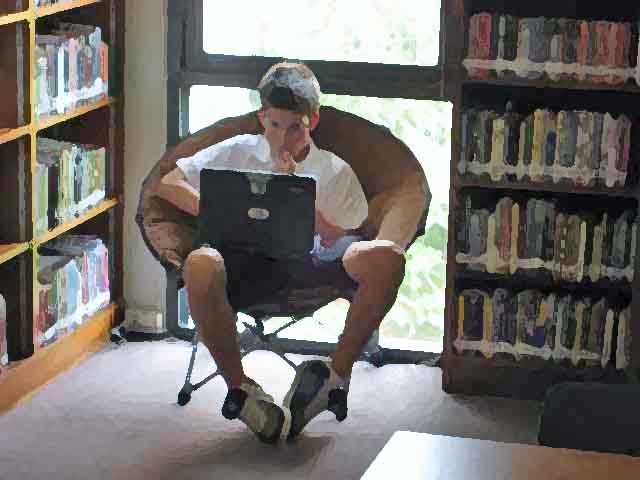The essential question?
 Wednesday, May 13, 2009 at 05:06AM
Wednesday, May 13, 2009 at 05:06AM Form follows function.
- Louis Sullivan
 ISB student "using" the library, May 13, 2009
ISB student "using" the library, May 13, 2009
The question our team was to help answer was supposed to be: How can the MS/HS library program and facilities be improved to support student learning and achieve the ISB Vision for Learning?
But somehow it changed in a meeting with school officials this afternoon to: Does a school need a library when information can be accessed from the classroom using Internet connected laptops?
The new question is uncomfortable, messy, and incredibly important and not restricted by any means to one particular school. It is one to which all library people need a clear and compelling answer.
I've been addressing this question in articles since, well, for a long time, including:
- Why do we need libraries when we have the Internet? Knowledge Quest, Vol #27 no. 1 (1998)
- Are Libraries (and Librarians) Heading Toward Extinction? Teacher-Librarian, Dec 2003
- Letter from the Flat World Library Corporation, LMC, March 2006
- The Importance of Bricks, LMC, August/September 2006
Do you have a good response? What part does a facility play in a ubiquitous information environment? How does the librarian's role change? How do we assess our impact if physical visits become less frequent?
Your answers?








